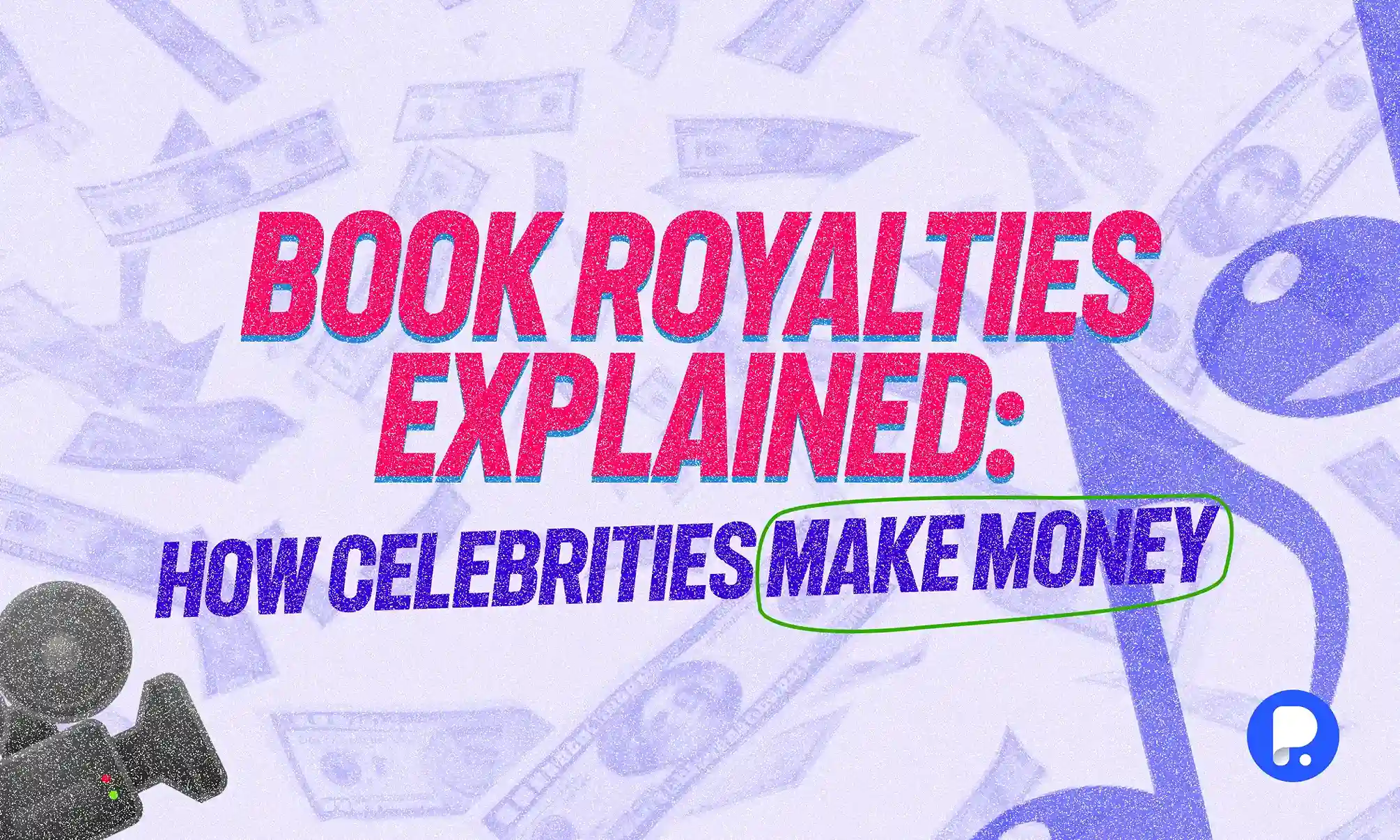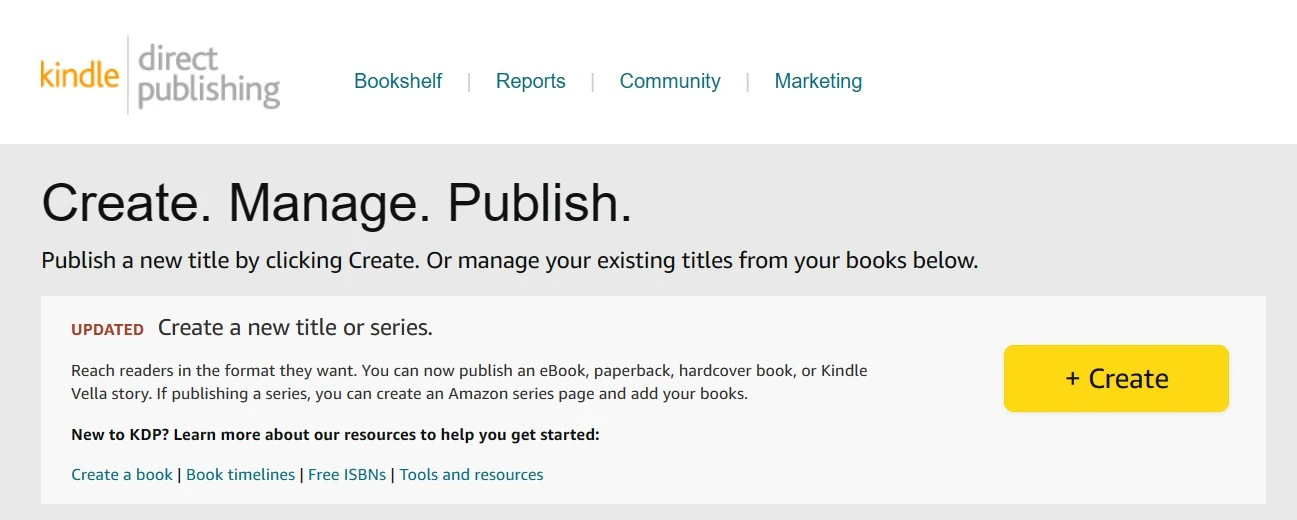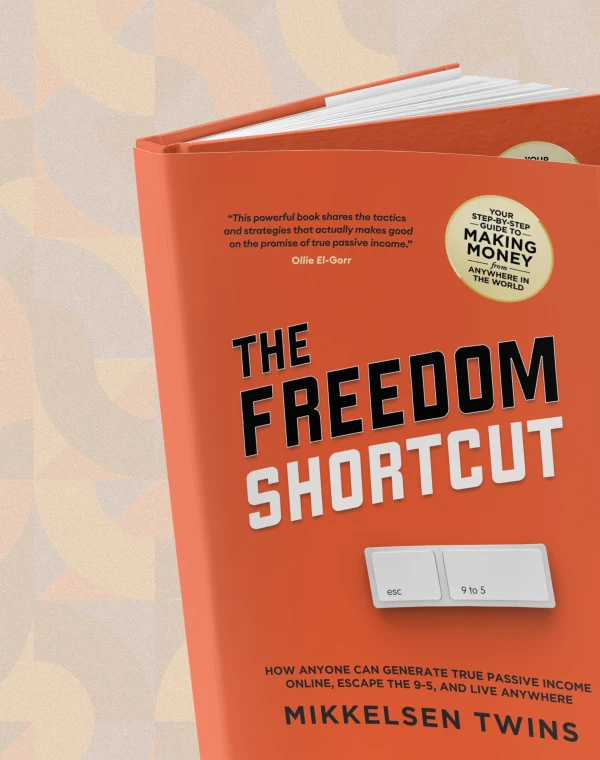
FREE Webinar
hosted by Christian Mikkelsen

The Future of Life-changing Income with AI and Amazon
Yes, I Want to Make More Money Online NOW
Celebrities make money from royalties (and you can too)!

Taylor Swift, Mariah Carey, George Clooney…they all make money the same way, and it takes no extra effort on their part. The checks just keep rolling in month after month and year after year. That’s the magic of royalties.
Sometimes these royalties come from music. Other times they earn them when big brands use their likeness and their face in ads that get seen by millions of people. Either way, these royalties work the same as book royalties.
What are book royalties? Well, book royalties are payments made to an author or publisher for the use of their creative work. When a book is sold, the publisher earns a percentage of the sale price as a royalty. This serves as compensation for their intellectual property (and can be pretty motivating too). This blog post covers all things royalties to help you understand what they are and how they work.
Start earning royalties even faster! Access our blueprint for making royalties while you sleep with our free Amazon KDP webinar.

Publishing just doesn’t look the same as it did a decade ago—and that’s a good thing because you have more options than ever. In this section, we’ll explore the different publishing models and how they affect your book royalties.
Traditional publishing typically involves signing a publishing contract with a company that will handle the editing, printing, marketing, and distribution of your book. In return, you receive an advance payment and a percentage of the book's sales as royalties. The average book royalty rate for traditional publishing can range anywhere from 6% to 25% of the book's retail price.
On the other hand, self-publishing allows you to retain complete control over the entire publishing process. You will be responsible for editing, formatting, and marketing your book (or bringing in additional help, like a ghostwriter). Along with more control, you also get to keep a higher percentage of the book's sales as royalties. Self-publishing royalty rates can range from 35% to 70% of the book's retail price, depending on which platform you share your work on.
The eBook and audiobook markets have completely exploded over the last few years, and they’re only projected to grow even more.
For eBooks and audiobooks, royalty rates are usually higher than for print books. For example, Amazon's Kindle Direct Publishing (KDP) program offers royalty rates of up to 70%!
We have a free ebook royalty calculator tool to find out how much you can earn per book. Simply put details such as the royalty rate (35% or 70%), store location (US, UK, EU), price of the book, and file size after compression to estimate your royalties, Amazon’s share, and any delivery costs.
Print-on-demand (POD) allows you to print your book as orders come in rather than printing a large number of copies upfront (which some traditional publishing houses and vanity presses require). This can save you thousands of dollars in printing costs and storage fees.
Online platforms such as Amazon and Barnes & Noble offer POD services, so you don’t have to waste your time dealing with inventory management, shipping, or returns. All you have to do is submit your work and focus on getting as many positive reviews as possible.
_11zon.webp)
In this section, we'll explain the definition, different types of royalties, the role of publishers and authors, and the contracts and negotiations involved in the process.
Royalties are a percentage of the book's sales price that the author receives.
There are different types of royalties, including:
Advance and graduated royalties are only really relevant under the traditional publishing model, which is slowly being phased out as self-publishing on Amazon becomes easier and even more lucrative. While advance and graduated royalties are capped at a certain limit, there’s no cap to what you can earn as a self-publisher from your percentage royalty with Amazon’s KDP.
Under the traditional publishing model, the publisher and author are typically two different people. There might also be a separate editor and designer. This model could offer you an advance royalty up front, but the entire model limits your creative control and potential in exchange.
With self-publishing, you can hire a ghostwriter to help you with your manuscript, but as the publisher, you have 100% say in who you involve in the process while maintaining 100% of the credit and rights to the royalties afterward. The author’s name on the cover of the book might be your real name or a pen name—you get to choose! The distinction between an “author” and “publisher” comes from that level of control.
Contracts are legally binding agreements between authors and publishers. They outline the terms and conditions of the publishing agreement, including the royalty rates, marketing fees, and any other agreed-upon services.
When negotiating a contract, authors should consider the following:
Wanna know a secret? Self-publishers don’t really have to deal with contracts.
Book contracts are becoming a thing of the past along with the traditional publishing model. Depending on which platform you decide to self-publish on, you’ll have to comply with their content guidelines, sure. But these platforms let you publish or unpublish your content at any time, and you retain ownership.
Why give any of that up to work with an agent or publishing house that may or may not actually help you break even?
Let’s talk money. How do you actually get paid and calculate the book royalties you earned?
Gross sales are the total amount of money generated by book sales, while net sales are the amount of money that remains after deducting expenses such as printing costs, distribution fees, and returns. You will typically receive royalties based on net sales.
The good news is that Amazon takes on all the printing, distribution, and return costs for you, so you’ll continue to earn up to 70% in book royalties. Amazon KDP also generates a monthly royalties report for you right in your dashboard, so you can track your book sales on Amazon.
We also offer a comprehensive KDP royalty calculator. This tool is designed to help you estimate your earnings from book sales on Amazon KDP.
After making your free account, you’ll be prompted to enter your tax and banking information. From there, you’ll be able to access your “Reports” from the main dashboard up at the top.
The reports will auto-generate with your top royalty sources, top marketplaces, and estimated royalties for the current month. This will include data for all the versions of your book, including the hard cover, soft cover, and eBook.

Finances can be intimidating for first-time publishers, but here’s a quick overview to hopefully make it a little easier:
Understanding Royalty Statements
KDP Payment Schedule
Accounting and Budgeting
Tax Considerations
Separating Business and Personal Expenses
%20(1)_11zon.webp)
We aren’t lawyers, and you certainly shouldn’t expect these things to happen, but here are some legal matters that could potentially come up with self-publishing.
As a self-publisher, you retain full copyright of your work…as long as it isn’t plagiarized. Double-check that any images, text, or other content you use have the proper permissions or licenses.
If you're collaborating with others (like illustrators, co-authors, or editors), having clear contracts will keep you protected. These agreements should detail rights, responsibilities, payments, and royalty splits to prevent future disputes.
(Pro Tip: You are not obligated to share your royalties with anyone as a self-publisher).
Be cautious about the content in your book. Avoid making defamatory statements or misrepresenting facts, which can lead to legal challenges.
If your book includes real people or events, it's important to respect privacy laws. This is especially true for non-fiction works where real-life events or personal information are involved.
To maximize your royalties, consider the following strategies:
Set a competitive price for your book that balances reader affordability with optimal royalty returns. Regularly review and adjust your pricing based on sales performance, market trends, and competitor pricing.
Offer your book in multiple formats (eBook, paperback, audiobook) to cater to different reader preferences. This approach can broaden your market reach and increase overall sales.
If you're publishing through Amazon KDP, consider enrolling in the KDP Select program. While it requires exclusivity for a short period, it gives access to additional promotional tools and revenue opportunities like Kindle Unlimited.
Implement a strong marketing strategy for your self-published book to boost visibility and sales. The best marketing strategy helps you capitalize on positive book reviews while staying compliant with Amazon’s guidelines.
Keep a close eye on your sales data. Use this information to tweak marketing efforts, explore new markets, or adjust content based on reader feedback.
At Publishing.com, we teach everyday people how to make meaningful income streams online with self-publishing, but one thing we will never do is take a percentage of your royalties.
Why? Because it doesn’t sit right with us. We WANT you to earn as much as you possibly can (and we teach you how to do it).
We can show you exactly how to:
-Research profitable book ideas and niches
-Find the best ghostwriters
-Get a polished manuscript approved and published in as little as seven days
-Start earning royalties that get deposited in your account while you’re sleeping
You don’t have to be Einstein. In fact, you don’t need any degree or experience at all.
The secrets are all here in this webinar.
